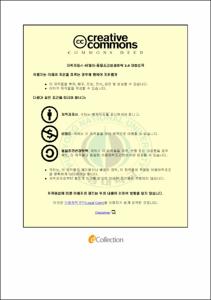권리기반 ITQ제도의 경제적 지대창출 효과에 관한 연구
- Abstract
- Fisheries resources worldwide have been decreasing, mainly due to "overfishing". The depletion of Atlantic cod and Northern Bluefin Tuna, which had brought tremendous wealth to mankind, is a stark example of how serious the result of overharvesting is.
Overfishing has caused the decimation of many fish species, changes in the marine ecosystem, and a significant population imbalance among species in the food chain. The loss of habitats, lack of monitoring and supervision over fishing activities, and poor fishery management are the other main culprits of declining fisheries resources.
However, the good news is that not all fisheries resources have been depleted. Some fishery management systems other than ITQ (Individual Transferable Quota) have been proved to be highly efficient to strengthen and restore stability, productivity, and diversity of the marine ecosystem. In addition, the management of marine protected areas and eco-oriented management have worked out well. ITQ, in particular, is recognized as the most sustainable way to manage fisheries from various perspectives of natural and social sciences.
ITQ is one kind of catch share, in which a dedicated portion of TAC (Total Allowable Catch) is allocated to an individual fisherman. The TAC, called quota shares, set by the government can typically be bought, sold and leased.
Based on ITQ, this study aims at setting an integrated and systematic plan to effectively introduce and implement ITQ, which will be brought into Korea in line with the master plan of fisheries resources management.
In order to overcome the limitations of the effort-based existing fisheries management system, exclusive property rights are granted for the use of fisheries resources so as to establish the theory of ITQ that encourages volunteer fishing activities based on the principle of market economy.
Currently, species that account for 10 percent of the global catch are managed by the TAC-ITQ or a similar system. ITQ is effective in controlling competitive fishing, improving productivity, and preventing overfishing, but the difficulty lies in the initial distribution of quotas.
This study targeted a chub mackerel fishery to analyze the current status of fishery management, and presented the effectiveness of the fishery management system in the perspectives of resources, industry and policy to introduce ITQ.
By estimating a catch function based on chub mackerel production, this study drew income and cost functions. On the premise that the price of chub mackerel is constant, the reduction of net profit was the least from ITQ, followed by current TAC and free fishery.
Regardless of using existing quotas or quotas with ±15% fluctuation, trade of catch quotas generated additional profits. Quota trade brought approximately KRW 59 billion of additional profits. As a result, the TAC allocated for one year was distributed to individual fishermen at an initial stage. It was found that when a quota was sold or leased, it could creat more profits.
The introduction of the ITQ would bring about many benefits. Most of all, it would help to restrict excessive fishing efforts. In addition, as a private property, ITQ owners will do their best to conserve their fisheries resources and maintain better prices.
In order to settle down the ITQ in Korea, an integrated fisheries management system that covers a wide range of sectors from fisheries resources, production, distribution, processing to consumption should be established. It is also necessary to closely connect fishermen with markets so that they can effectively communicate to balance between demand and supply of the resources.
As for quota estimation for lease and trade, scientific survey and assessment on fisheries resources, along with fishermen’s voluntary endeavors to generate and store their own data on catch and nurture, should be required. It will lead fishermen to form their own fisheries management system so as to pay keen attention to the sustainable management of fisheries resources.
Korea plans to introduce ITQ and put it in place soon. This study presented some challenges to the introduction of ITQ. However, effective management and operation of the ITQ system will definitely contribute to the sustainable use of fisheries resources while creating more economic benefits.
- Issued Date
- 2015
- Awarded Date
- 2015. 2
- Type
- Dissertation
- Publisher
- 부경대학교 대학원
- Affiliation
- 부경대학교대학원 해양수산경영학과
- Department
- 대학원 해양수산경영학과
- Advisor
- 이상고
- Table Of Contents
- 제 1 장 서론 1
제 1 절 연구의 배경 및 목적 1
제 2 절 연구의 내용 및 방법 3
제 2 장 선행연구 및 국가별 사례 분석 5
제 1 절 선행연구 5
제 2 절 ITQ 제도 도입의 필요성 13
제 3 절 주요국 ITQ 제도의 관리운영 실태 19
제 3 장 권리기반 ITQ 제도와 지대창출 36
제 1 절 권리기반 ITQ 제도 36
제 2 절 권리기반 ITQ 제도의 특성 43
제 3 절 ITQ 제도 도입의 지대창출 효과 47
제 4 장 실증분석 63
제 1 절 고등어 어업 및 자원현황 63
제 2 절 고등어 TAC 현황 및 관리실태 78
제 3 절 고등어어업 ITQ 어업관리의 지대효과 분석 84
제 5 장 우리나라 ITQ 제도의 실효적 도입 및 운용 방안 95
제 1 절 ITQ 제도 관점에서의 어업관리 문제점 95
제 2 절 ITQ 제도 실효적 도입 유형 및 운용 방안 101
제 3 절 ITQ 제도의 기존 어업관리 보완과 행정체계 113
제 6 장 결론 120
감사의 글 123
【참고문헌】 124
- Degree
- Doctor
- Files in This Item:
-
-
Download
 권리기반 ITQ제도의 경제적 지대창출 효과에 관한 연구.pdf
기타 데이터 / 2.29 MB / Adobe PDF
권리기반 ITQ제도의 경제적 지대창출 효과에 관한 연구.pdf
기타 데이터 / 2.29 MB / Adobe PDF
-
Items in Repository are protected by copyright, with all rights reserved, unless otherwise indicated.